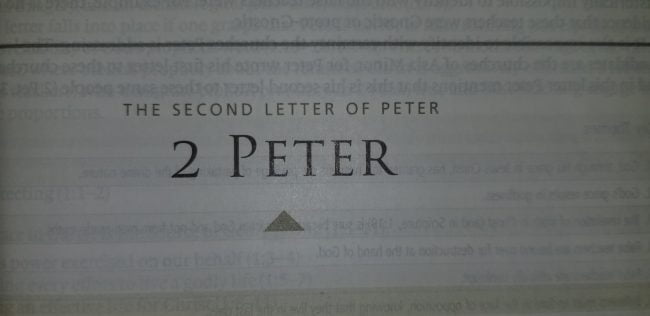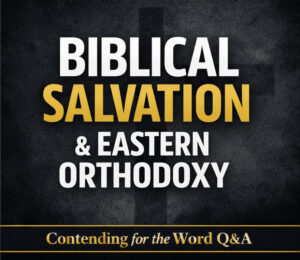⏱️ Estimated Reading Time: 3 min read
2 Peter 3:1-2, “This is now the second letter that I am writing to you, beloved. In both of them I am stirring up your sincere mind by way of reminder, 2 that you should remember the predictions of the holy prophets and the commandment of the Lord and Savior through your apostles,”
Christians living today two thousand years after the first coming of Christ may assume that the earliest Christians did not face the same kind of challenges and temptations that we face today. We may also be tempted to think the mere presence of apostles in the Early Church ensured that the Christians would not be bothered by false teaching. As we’ve seen from 2 Peter though, we know this perspective isn’t correct. Even before the Apostles died, false teachers made their way into the local churches in what is now northern Turkey. Peter sent the Christians there this letter before he died to help them recognize and combat false teaching.
Over the last several weeks, we’ve spent a lot of time in 2 Peter 2 where Peter devotes much space to the immoral character of these false teachers assuring God’s people of their judgment and condemnation. Peter also describes their teaching, helping readers understand that the message these false teachers taught was not biblical sexuality but living, however, they want in the name of Christ the Lord (2 Peter 2:18-19).
Peter writes not only to describe the false teachers and teaching; he warns God’s people to stand against it. In 1 Peter, again and again, he reminds God’s people of the true grace of God, which enables Christians to stand firm in the face of suffering (1 Peter 5:12). To stand against false teachers requires that God’s people remember the grace of God. In 2 Peter 3:1-2, Peter calls Christians to remember the words of the prophets and apostles, for in doing so, they remind themselves of the true grace of God.
Christians will never be able to refute false teaching unless they are instructed in the essential teachings of the Scripture. Peter’s call to “remember” isn’t concerned with a collection of mental facts but the recalling of Christian truths in such a way that one’s entire life is affected in change. Throughout Peter’s epistle, we’ve seen this in his call to practical holiness (1 Peter 1:3-11). To Peter, the call to personal holiness is one of the essential doctrines that we must remember lest God’s people succumb to false teaching (2 Peter 3:11-12).
Peter additionally wants God’s people to remember the Second Coming of the Lord Jesus as an essential doctrine. As we will see in 2 Peter 3:11-12, the Second Coming of the Lord Jesus is given to God’s people that they may have the proper motivation for holy living before the face of God. We may be tempted as Christians to think that personal holiness is not a basic doctrine or that we should not be concerned with how doctrine affects the Christian life practically, but this is the wrong perspective. Sound doctrine leads to right living before the face of God. The true Christian always studies Scripture with an aim towards thankfulness, obedience, and to glorify God with their entire lives.



